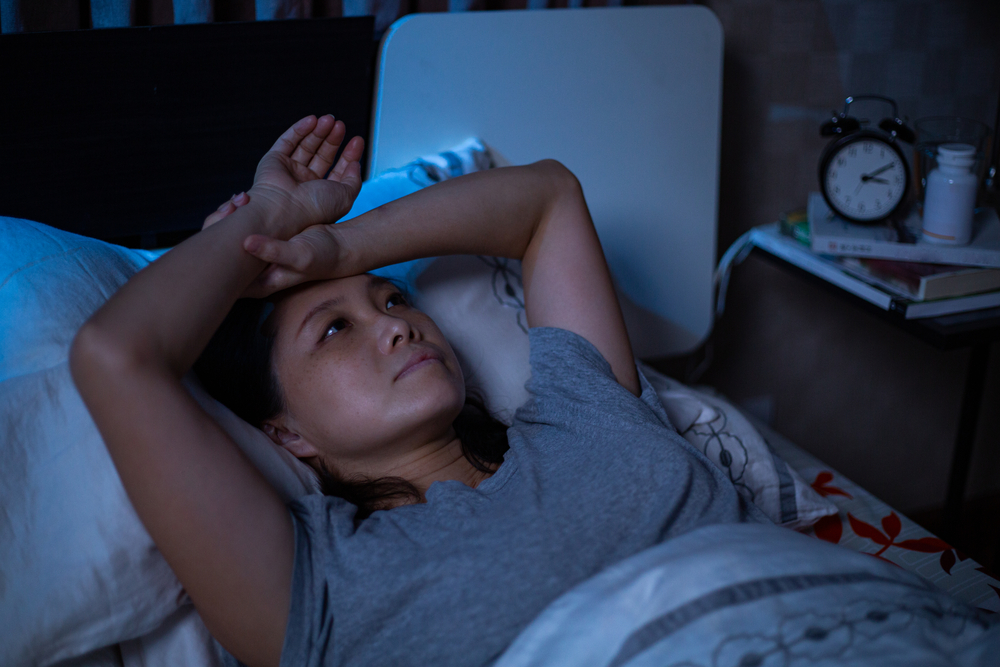What Contributes to Insomnia in Women?
Do you have difficulty falling or staying asleep? If this is a reoccurring issue, you may be suffering from the most common sleep disorder, insomnia. According to the Sleep Foundation, between 50 and 70 million Americans have an ongoing sleep disorder, with as many as 15% of US adults enduring insomnia that affects their daily lives. So what about insomnia in Women?
About Insomnia
There are different types of insomnia; transient insomnia is something we all experience from time to time due to a stressful or concerning situation and is not a significant concern.
Acute insomnia can last for several weeks and is typically the result of significant stressors like the death of someone close, the loss of a job, or anticipation of an upcoming challenge, and is more concerning than the transient form.
Chronic insomnia can endure for weeks, months, or years. A diagnosis of chronic insomnia is applicable when an individual has difficulty falling or staying asleep three nights a week for longer than three months.
There are two subtypes of insomnia. Onset insomnia is difficulty falling asleep; maintenance insomnia indicates challenges with remaining asleep.
And while insomnia can afflict anyone, women have a 40% higher lifetime risk for a diagnosis of insomnia than men. Women typically endure more complex insomnia with multiple symptoms than men, who usually indicate a single sign.
Why the Difference?
The sex-based variables in sleep typically begin during puberty when hormone production ramps up in both boys and girls. Females experience substantial changes in hormone production at the beginning of their menstrual cycle, to name only one of many differences.
Two vital female sex hormones, estrogen, and progesterone, are crucial to numerous sleep-regulating processes. As women progress through life, these hormones play a pivotal role in different life stages:
- Menstruation
Estrogen and progesterone levels decrease prior to the onset of a menstrual cycle, potentially disrupting sleep and producing other emotional and physical effects. - Pregnancy
Profound hormonal changes throughout pregnancy often disrupt rest, affecting sleep timing and architecture. The sleeping challenges can continue throughout the postpartum period, and experts believe that more than 50% of pregnancies involve insomnia, - Menopause
The significant role of hormones is quite evident during menopause, with hormonal changes to the circadian rhythm and ubiquitous hot flashes and night sweats typical of this stage in life. Sleep challenges are common throughout perimenopause and menopause.
Anxiety and depression are often the triggers for insomnia, and women are more likely than men to receive such a diagnosis (perhaps because men are generally more reluctant to discuss health issues). Also, heartburn and acid reflux are more common in women.
These substantial differences in the physiology of men and women can explain much of why sleep challenges like insomnia are more significant issues for women.
The Circadian Rhythm
Your body’s 24-hour internal clock controls your circadian rhythm, which helps to regulate numerous bodily processes and systems like sleep. A robust circadian rhythm helps a person feel awake throughout daylight hours and sleepy at night, promoting a consistent sleep routine.
Daytime sleepiness, sleep disruptions, and significant health issues can result when an individual’s sleep schedule and circadian rhythm are not in harmony. And while there are only slight differences between the circadian rhythm of men and women, those minor differences can still impact the quality and quantity of rest.
Few circadian rhythms are precisely 24 hours, and typically, that internal clock is a few minutes shorter for women, meaning they turn in and awaken somewhat earlier than men.
Final Thoughts
Struggling with insomnia can make life difficult and cause significant health issues. Lack of sufficient rest harms your quality of life and overall well-being.
Women are more likely to battle this affliction mainly because of the hormonal changes that impact their bodies throughout their lives. And while these biological realities are unavoidable, obtaining adequate rest and managing this condition is still possible.
Understanding insomnia’s physical, mental, and emotional origins and impact is vital for managing it. Proper support is your best option for facing this thief of your night.
Sleep Science Academy’s uniquely empowering and successful program will match you with your personal, professional sleep coach to guide and support you through your efforts in overcoming insomnia.
If achieving your ideal restorative rest for a lifetime of peaceful nights and the lifestyle you deserve sounds appealing, contact us today to schedule your complimentary sleep consultation. Talk with one of our certified sleep coaches and discover how we can help you achieve these goals.
You can learn more about our highly successful, multifaceted approach in this short article about Dynamic Sleep Recalibration (DSR).

